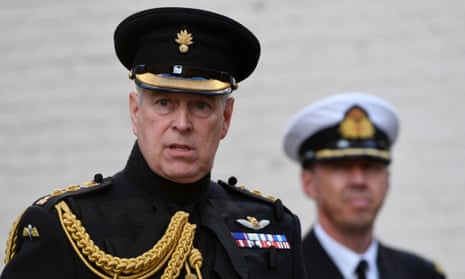Well, he’s surely sweating now. One by one, the options are running out for Prince Andrew. He has just lost his latest legal battle after Manhattan federal court judge Lewis Kaplan’s ruling today that the sexual abuse lawsuit against him should proceed to trial, despite his lawyers advancing a variety of technical arguments, including that Virginia Giuffre no longer lives in the US, that she agreed in a 2009 deal not to pursue claims against certain other people, and that the court summons had not been properly served. He now faces a long trial that is likely to cause considerable reputational damage to the royal family in a year when everyone was supposed to be celebrating the Queen’s platinum jubilee.
One possibility left to him is settling with Giuffre out of court. After all, this is what happens in the vast majority of civil litigations in the US, particularly after the attrition of a drawn-out court case begins to bite. But such an option could hit the cash-strapped prince hard in the pocket, given reports that he is trying to sell his £17m Swiss chalet to raise funds just to pay for his legal bills; this is after reports from the palace that the Queen would not bail him out financially. Since Giuffre had already received $500,000 in a legal settlement with Epstein, any settlement could run into the millions of dollars (some reports have put it as high as $5m). If that happened, despite palace denials, the Queen would probably have to intercede with help, just as she did when Charles was faced with a multimillion-pound divorce bill from Diana in 1995.
Whichever way you look at it, Andrew is now a major liability for the royal family and the palace must wish he would just retire to his Royal Lodge home and lead a life of quiet anonymity. Part of the problem, as we discovered with the sudden departure of Prince Harry from the royal hearth, is that there is no clear process of “de-royalling” a royal. Despite his escape to California, Harry was allowed to keep a few of his royal connections in case he ever had a change of heart. The situation of his Uncle Andrew is obviously much more serious and more difficult to decouple.
Today’s ruling represents a victory for Giuffre’s team and, from her point of view, a positive step. But even in the best-case scenario for Andrew, if the legal process went to a full trial and he successfully defended himself, the reputational damage to him and the royal family would still be done. The fact that he had numbered among his friends two people who were convicted sex criminals would tarnish his name for ever. There is no way back for Andrew. Whatever the difficulties, the palace may have to find some way to “de-royal” him – he is for all intents and purposes an ex-royal and faces a lot of sweating in the year to come.
David McClure is the author of The Queen’s True Worth
